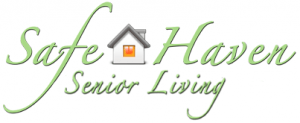What is “Sundowning” and How to Manage it
Sleeping problems occur in almost all people with mental disorders, including those with Alzheimer’s Disease or Dementia. Sleep determines our ability to do daily functions and maintain our physical/mental health. Many people believe that a difficulty sleeping is the center of the problem.
What is Sundowning?
Sundowning can cause someone to experience a variety of behaviors some of which include confusion, anxiety, and aggression typically with people that also have Alzheimer’s Disease or Dementia. Sundowners isn’t classified as a disease because it’s a group of symptoms that occur at a specific time of day. Sundowning is also called Sundowning Behavior or Sundowners Syndrome.
What are the symptoms of Sundowning?
People can show signs of anxiety, confusion, wandering aimlessly, general disorientation and in some cases hallucinations. These symptoms are likely to occur in the late afternoon or early evening.
What are common triggers for Sundowning?
Too Much Activity at the End of the Day: Researchers believe that a rush of activity at the end of the day can lead to anxiety or confusion.
Fatigue: Exhaustion at the end of a day can contribute to Sundowning.
Lower Visibility: As the sun goes down and there’s dimmer light available, it could challenge for a person to see as well.
How do you take care of a person that’s Sundowning?
- Allow for light in the morning to help establish an internal clock.
- Daytime napping should be minimized to help manage a regular sleeping cycle.
- Encourage exercise to help regulate energy levels.
- Limit caffeine intake specifically for the morning and avoid it in the afternoon.
- Create a private place just for winding down and decompressing.
- Consider purchasing a bedside commode frequently getting up and down can make it hard to get back to sleep.
Living in a supportive community like Safehaven can help manage these symptoms with the help of professionals in a compassionate way. If you have a loved one that has Alzheimer’s Disease or Dementia find out HERE how Safehaven’s Senior Community in Atlanta, Georgia can help make a positive impact on their lives.
